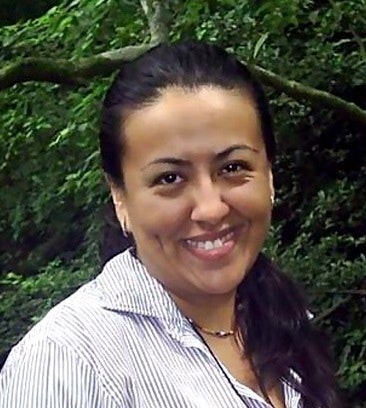Sustainable forest use and subsistance hunting for indigenous Maya-Q’eqchi’ communities, Lachuá, Guatemala
The Ecoregion Lachua, a vast tropical wetland area, is one of the most biodiversity-rich regions of Guatemala inhabited by many species of endangered wildlife and 49 indigenous Maya-Q´eqchi´. Many local people are survivors of Guatemala’s 36 year civil war and were displaced from their original lands. Traditionally self-reliant, the Maya-Q´eqchi´ have a subsistence economy based mainly on agriculture and the use of wildlife and other forest products. Wildlife hunting is an ancestral multi-purpose practice that provides quality protein, eliminates problem animals that damage crops and favours social cohesion.
Since 2002, wildlife biologist, Marleny Rosales-Meda, leads a team working on Guatemala’s first long-term study of subsistence hunting in the unique Maya-Q´eqchi´ culture. The team has carried out key ethno-biological research which has revealed that hunting, done in the traditional way, favours an appropriate use of wildlife. She believes that this understanding of wise-use can be nurtured to develop effective conservation approaches in the region at a time when people are losing touch with their indigenous roots. Currently, changes due to the Central America Free Commerce Treaty have jeopardised traditional ways of life and increased the demand for resource extraction and land selling.
In 2008, Marleny launched a unique Popular Environmental-Cultural Education Program (PEPARQ) to educate and create awareness among local people about the value and importance of natural resources to generate positive changes in their attitudes and socio-environmental values and increase their skills for conservation and sustainable management of wildlife; integrating and linking ancestral Maya-Q´eqchi´ wisdom related to the responsible and respectful use of nature. A key aim of this program is also to reinstate methods of hunting – such as avoiding species during their breeding seasons – that are sustainable in the long term. Local people are being encouraged to share their knowledge, spiritual practices and celebrate their indigenous identity.
In 2010, Marleny and her team founded the NGO ORCONDECO (Organization for Nature Conservation and Community Development) to strengthen and give continuance to their long-term work. Thanks to its positive results, the process that started with 14 communities has now been broadened to 64 communities and 56 education establishments from three regions that neighbour Laguna Lachua National Park. Her work has also earned strong community and political support and positively impacted the national legislation. The Environmental-Cultural Education School Program (PEACE) has become the first contextualized and locally-suited effort of its kind in Guatemala to obtain the certification and endorsement of the National Ministries of Education and Environment. In addition, the new Cynegetic Region II she proposed as a result of the long-term subsistence hunting was legally approved as an amendment of the General Hunting Law. This new region guides and regulates hunting activities in four departments of Guatemala, based on the wildlife reproduction calendar, hunting caps/quantities & bans established in Lachua through their applied participative research process. Her ongoing work seeks to broaden, institutionalize and ensure the long-term sustainability of both of these pioneer conservation processes with cultural pertinence.
Marleny’s work is helping create a future where indigenous people are proud of their identity, aware of their rights and actively in control of their land´s management. Their innovative pilot programs contribute to the protection of the National Park and local livelihoods by training people in resource management, whilst improving their ability to work with government authorities. Inevitably, change is coming to Guatemala, but thanks to Marleny and her team, the Maya-Q´eqchi´ are increasingly equipped to face the future together.
Project Update: 2018 Continuation Funding
Empowering young conservation leaders, Guatemala
£70,000 over two years
With WFN support Marleny Rosales-Meda and her NGO ORCONDECO have led two participatory programmes tackling threats of unsustainable hunting and empowering indigenous communities to conserve their natural environment with the introduction of Guatemala’s first government approved environmental education programme. Thanks to this work, overhunting is no longer a threat in the project’s priority conservation landscape in the Lachua Ecoregion – a Ramsar site.
However, the long term sustainability of their operation’s impact has been threatened by a lack of employment opportunities for young community members, resulting in migration to cities and even as far as the USA. Continuation Funding will enable ORCONDECO to build youth leadership through applied socio-environmental alternatives, establish 10 learning spaces for training and innovation in sustainable production initiatives and engage further youth leaders in their long term sustainable livelihoods programme. In doing so Marleny will build vital local capacity to manage conservation projects and empower future leaders to protect this important area and its biodiversity.







